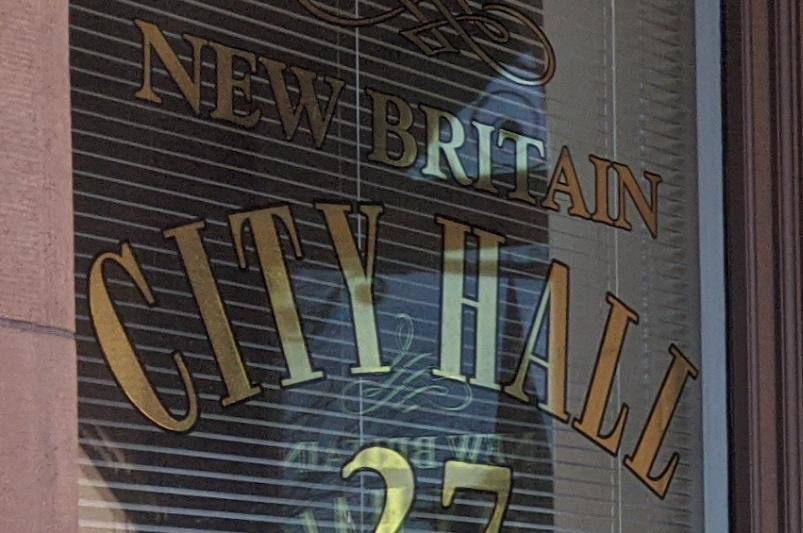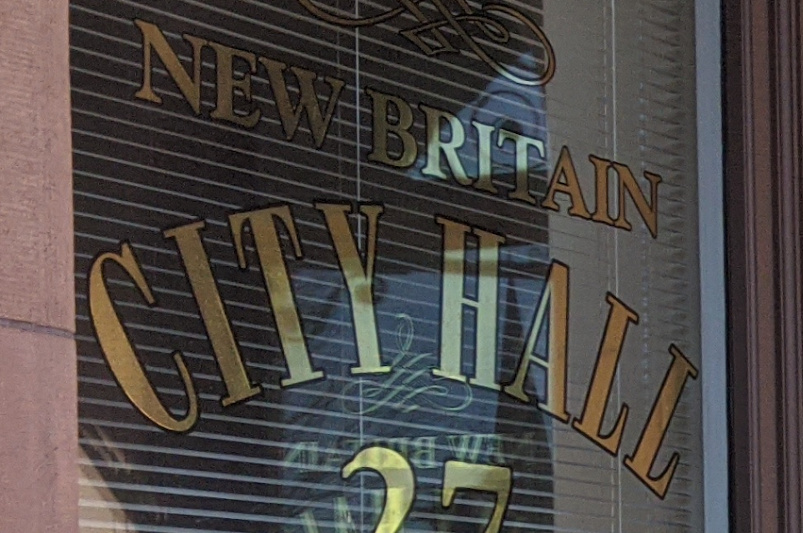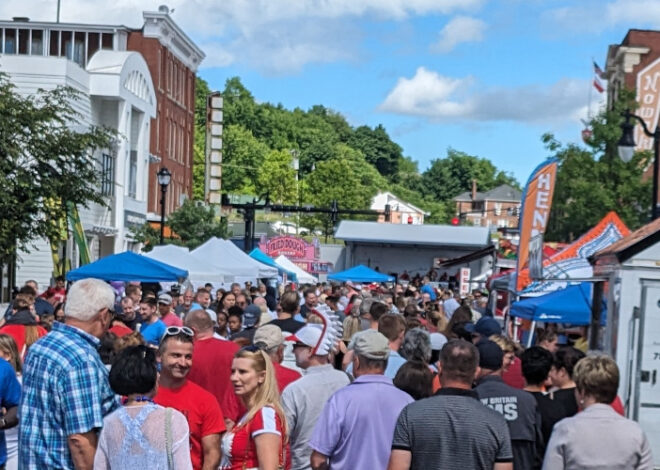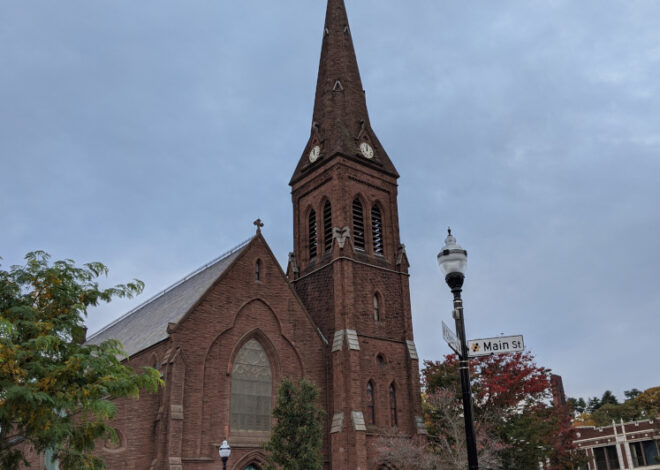By Tim O’Brien
When I was an elected official, I tried to stand up against cases of injustice. The way I looked at it, is that if I had a voice that was more likely to be listened to, then it was important for me to speak up for people who would not be in the same position to take a stand against things that were wrong.

Now, it seems, I find myself in the same position taking a stand of something that is clearly wrong and can be harmful to many other people.
On August 2nd, I completed an application for an absentee ballot and dropped it in the mail. That was two Sundays before the primary on August 11th. I submitted it under the temporary law that came from the wise decisions of Gov. Ned Lamont and Secretary of the State Denise Merrill to allow people to decide for themselves whether they wanted to vote by absentee ballot because of their own assessment of the risk of getting COVID-19.
I submitted the application in good faith. I saw no reason to add yet one more possibility of getting COVID-19, and then potentially passing it on to my family. My concern came straight from seeing the chaotic scenes in other states, where voters had to choose between their health, and those of their loved ones, or exercising their right to vote during the pressure of a single day of balloting.
In-person voting is a social experience. That is actually the very idea it. Voting in person is the opposite of social distancing. That is also why, even with the greatest of care by poll workers, I could imagine all sorts of reasons for why I would prefer to not be making my way through Vance School, where I vote, and lingering in its cafetorium.
I also saw it as my responsibility to take advantage of that good faith right, because the fact that I did would lend greater legitimacy to others who wanted to avail themselves of the same right, both in the primary and, later, in the general election.
So my absentee ballot was in the mail a full week and a day before primary day. A full week went by and I didn’t receive my ballot. The absentee ballot application had said that if I hadn’t received the ballot in a week, that I should check with my town clerk’s office. So, on Monday the 10th, that is what I did. Since it was one day before the primary, too late for ballot to be mailed to me, I took my lunch break to go down to the town clerk’s office.
Having to do that was undesirable to me, since showing up in person in the town clerk’s office was not as safe from COVID-19 as voting by mail. But, I thought, going the town clerk’s office, which is only seven paces away from the back outside entrance to City Hall, on a day that did not have the pressures of primary day, was was at least better than showing up at the polls on primary day. I could get my ballot and then later fill it out and drop it in the convenient ballot box outside city hall.
But even this compromise on my part was not the end of it.
First I was told by town clerk staff that, rather than take advantage of my right to vote by absentee ballot, I should go to the polling place instead – the very option that I was trying to avoid. The person behind the counter said that was what they were advising people to do. So that “advice” was, apparently being given to other people, too. If so, they were essentially being given the choice of doing what in their mind was putting themselves at risk – or, by implication, not voting. That’s what it means when somebody asks for a ballot they have a right to and the office with the power to give it to them or not “advises” them to do something else.
I didn’t really feel that it was their place to be questioning my exercise of my own rights, or anyone else’s, so I asked to be able to apply for and get an absentee ballot, as I had a right to. I had, I explained, in fact, already applied for one, a week before. Another staff person went to go looking for my absentee ballot application, and returned and said that it had not arrived. Now, I have been following the national news, and the problems that are coming from the administration of Republican President Donald Trump, which seem to be making the mail service very slow, coincidentally around election time. So, for all I know, my ballot did not arrive, and the blame for that particular debacle belongs to Mr. Trump.
But, for the reasons that I stated above, I still felt that it was valuable for me to be able to vote by absentee ballot, so I asked for an application. And, while an application was pushed across the counter to me, it was also then explained that I would have to return to the town clerk’s office the better part of two hours later in order to actually get my absentee ballot. This was news to me. I have voted by absentee ballot before, in that case, when I expected to be out of town for all of the hours of voting, and I was able to obtain my ballot on the spot, fill it out, turn it in, and know that my vote would be counted. I have heard from many others who have done so, as well.
But not this time.
This time, I was told that there had to be a delay because the Town Clerk, himself, Mark Bernacki, had to personally approve of each absentee ballot application.
Personally?
Did I mention that, like Donald Trump, Town Clerk Mark Bernacki is a Republican.
Coming back two hours later was not something I could do, since, as I said, I was there on my lunch break, and had to go back to work. Not wanting to have my right to vote taken away, I was then forced to do what I had been trying to avoid in the first place – going to the polls to cast my ballot on primary day, COVID-19 and all.
Of course, I could not help but speculate that a policy coming from the office of a Republican may be seeking to reinforce the general Republican opposition to the voting by mail-in ballots. Donald Trump, himself, has even started to cast a sinister pall of alleged illegitimacy on an election where people legitimately vote by mail.
After I left the town clerk’s office, I decided to check on this. I made a phone call to the office of the Secretary of the State. I asked whether what I was told is legitimate.
It is not.
Someone working in the Town Clerk’s office, I was told, should have been authorized to be able to approve my absentee ballot application and give me my ballot right away.
Again, I have long seen it as my responsibility to take a stand when I see injustices being done, because if it’s being done right in front of me, I can be fairly sure it’s being done when I’m not present to other people who don’t feel like they have the right to challenge what they’re told.
What happened under the administration of Mr. Bernacki seems to me to have been as wrong as it appears to be. That’s why I am considering filing an elections complaint against Mr. Bernacki.
I will take his office at their word that they didn’t receive the ballot application. If true, I won’t blame him for it not having arrived. Of course, I wonder, would that mean that I would have cause for filing an elections complaint against Donald Trump, himself, for the delay in the voting process.
On both counts, challenging what I encountered would be all the more relevant, if this, which appears me to be voter suppression, can be stopped before this November’s elections.
By the way, since I am discussing the issue of voting by mail and early voting, anyway, I would note that there are larger, related issues that will become relevant for future elections that deserve attention at this time too.
Public officials who think that they stand on firm ground in opposing voting by mail and early voting should not, because they are wrong and wrongheaded. The “concern” they raise, about the specter of voter fraud, is a lie. Real ballot fraud, trying to vote more than once or stealing someone else’s vote, is rare – no where near the level of the hype from Republicans and others who use this lie as a pretext for laws that disenfranchise people. No, those who oppose making it easier to vote just, plain don’t want certain people to vote. The phrase “voter fraud,” as they use, it is nothing more than a racist code word.
Furthermore, I actually believe that the current law not not allowing general use of mail and early voting is unconstitutional. The state Constitution says that the legislature can provide for absentee ballots and offers a few named reasons for why people should be able to vote by absentee ballot. Here is what it says:
The general assembly may provide by law for voting in the choice of any officer to be elected or upon any question to be voted on at an election by qualified voters of the state who are unable to appear at the polling place on the day of election because of absence from the city or town of which they are inhabitants or because of sickness, or physical disability or because the tenets of their religion forbid secular activity.”
Many people have said that the list of reasons in the state Constitution for absentee ballots are the only ones allowed. For that reason, advocates for mail and early voting tried unsuccessfully to amend the state Constitution to allow more reasons in the constitution to vote absentee.
But, truth be told, state law actually does already allow other reasons then are listed in the Constitution. They’re good reasons, like being in the armed forces and being a poll worker. However, that does leave as a candid fact that the state law does allow for other reasons to vote by absentee ballot than are named in the state Constitution.
The legislature can’t say that it can’t be done, because they’ve done it.
The state Constitution actually doesn’t say that the legislature cannot name other reasons for voting absentee, which means they can. Because the legislature can and has added more reasons for voting by absentee ballot, it means that its choice to not allow the easier method of voting for everyone really has to be based upon good cause. If it is not based on good cause, then it means that the laws of the state on voting are more onerous than they have to be for the purposes of suppressing the votes of people who lawmakers would rather not vote – and is inherently discriminatory.
Though the politicians who would prefer that some people not be able to vote as easily purport to have a good cause, they truly don’t. Their actual reason for denying the equal access to the easier right to vote is rank partisan political, at best, and downright racist, at worst. Truthfully, it is a mixture of both.
The United States Constitution requires equal application of the law, and denying people equal access to the right to the vote should, it goes without saying, be considered unconstitutionally unequal, and should be struck down. Or, better still, made equal by the legislature.
Going back to the here and now, though, I do compliment and thank the good people who served at the polls all day on primary day. In doing so, they made themselves among the essential workers who deserve our thanks during this COVID-19 crisis. I am glad that their efforts kept the all of the polls open. Though, I cannot help but think that I would have been helping them, too, if I was not there – having exercised social distancing in the form of voting, myself, by absentee ballot.
And that leads back to Mr. Bernacki.
Mr. Bernacki needs a good, solid reminder that his exercise of his office in the conduct of elections should be on the side of increasing access to the right to vote, not constricting it.




